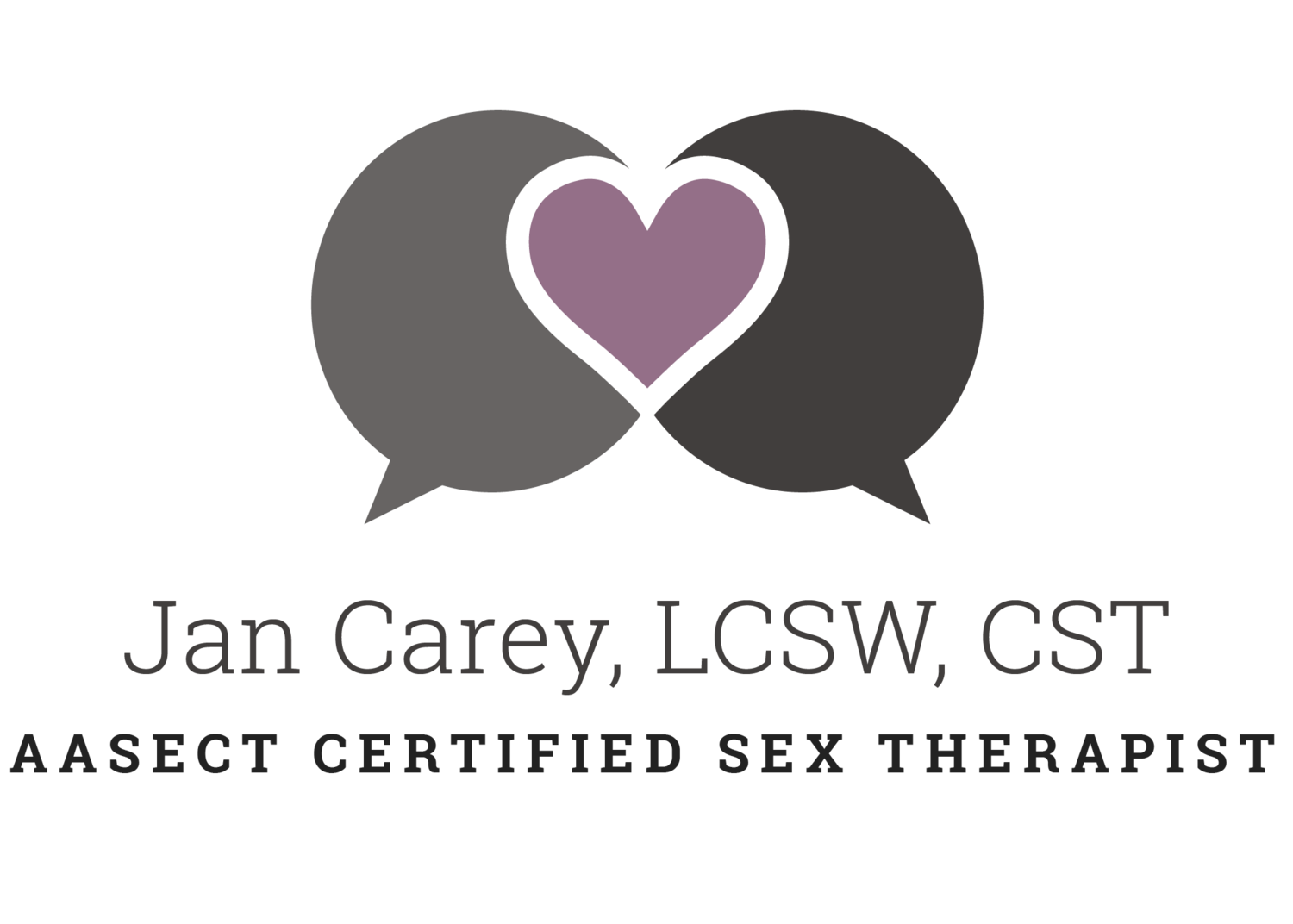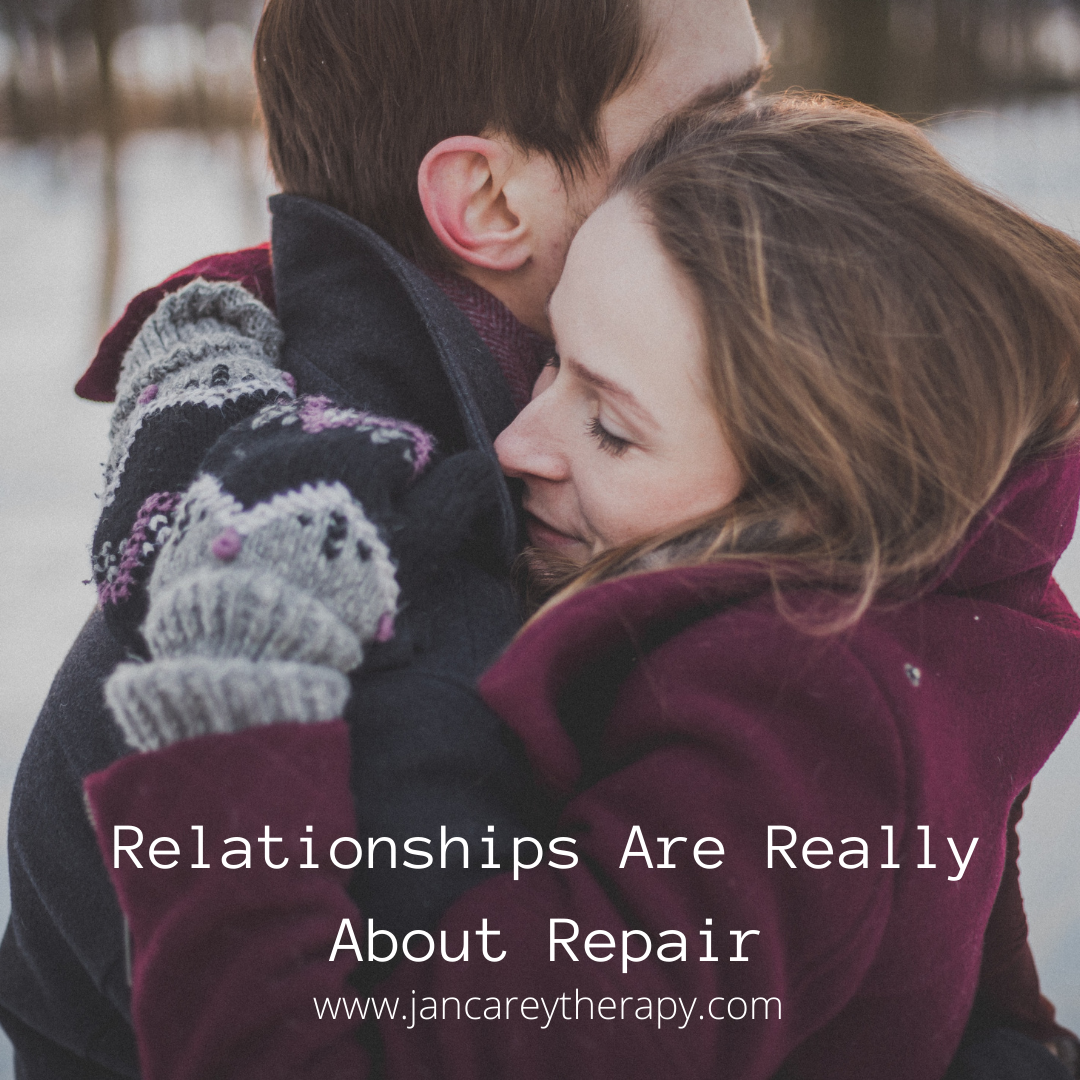Hey there Folks!
It’s been a while since I’ve written anything. My move from PA to MD took some effort, time, and focus. (Actually, it might have been one of the hardest things I’ve ever done by myself.) The good thing is that when we do hard things we grow and sometimes even learn to trust ourselves a little bit more in that feeling of competence. It creates confidence and even security in knowing - “I’ve got this.” I think I am walking a little taller in having been successful in making this move happen. More trust in myself is amazing!
I often think that if we had a bit more trust in ourselves relationships would go easier too.
How often do we swallow our feelings, shut down our words, and wish things were different? The irony is that eventually we can’t choke our feelings down one more time and then all those feelings brewing turn into a bitter explosion all over our partner. In the end, we do more damage in holding back than if we just spoke up at the moment. I see this happen not only in my virtual therapy room but also within my own life. Speaking our truth often gets lost in confusion around what is happening at this moment? Am I being too sensitive about this issue? Am I being fair to my partner to bring this other thing up now? Does my partner actually care about my felt experience so am I setting myself up for disappointment? Or avoidance and fatigue in dealing with disagreement and in just wanting peace and giving our partner a pass.
All these missed conversations leave a gap in our partner knowing us.
Without knowing each other we also have a lack of intimacy - or the ability to tell our partner the truth all of the time. Truth-telling is what creates connection and intimacy because when we share our hurts/worries/frustrations and our partners respond to them we then feel the security that they love us and are choosing us despite our limitations.
It’s ironically about not being perfect and being loved anyway - on both sides.
Telling the truth and being responded to allows us to relax in the relationship and be fully ourselves. This is the sweet spot of a relationship - the place where it gets joyous, vibrant, and juicy! Therapy in general usually gets focused on effective communication as the route to intimacy in a relationship yet in the end what is certainly true is that no one is perfect!
Screwing up and make mistakes is the norm and despite this, you do need to be responsive if you want a relationship because being in a relationship means their experience holds just as much importance as yours does.
Hey, I screw up too! It’s the human condition. Because no one is perfect and because this is inevitable it seems to me that the highest priority should not be on avoiding a mistake in a relationship but instead be able to respond to the mistake by repairing a relationship. It’s funny, most people would agree repair is not only important but actually vital yet most people can’t do it on the spot and I know people who never do it. They just wait till they and their partner have forgotten the situation, sweep it under the rug, and change the topic. Not knowing what repair actually looks like has some folk thinking it means admitting guilt and then accepting the beatdown that occurs afterward. This beat down can come from ourselves or our partner. No matter who it’s coming from it’s totally optional in creating repair and I would even say unhelpful because it’s the root cause for avoiding the conversation the next time someone screws up.
There is a huge disconnect in how we see ourselves behaving intellectually and what we actually deliver to our relationships. Our lenses aren’t broad enough.
I think it’s safe to say that when repair doesn’t occur it’s because there is some felt loss in admitting we made a mistake. We may feel shame (I’m a bad person.) or guilt (I did a bad thing.). As a result, there is a total organization around the avoidance of feeling those feelings. Instead, we go into explanations - “I did this because…..” (defensiveness). “You are making such a big deal about this - get over it!”(dismissal).“That’s not true because last week I did this for you.”(scorekeeping) “This is your problem, not mine.” (blame), etc. It’s like being in court where a lawyer is offering evidence that recounts conversations, events, intentions, or worse, use blame from other conflicts to “prove” why their mistake wasn’t a mistake and in fact made perfect sense!
Being right somehow becomes more important than being connected.
People usually don’t organize around repair and instead organize around avoidance of their partner’s experience. It’s like taking in the other’s experience will diminish their sense of self. People fight tooth and nail to avoid being “wrong” because repair somehow equals loss. Perhaps the totally irony here is that the partner who hurt and defends most often walks away just as sad and lonely as the person who felt injured initially. I think it’s fair to say that there is no “winning” in a fight. We all know this intellectually but at the moment taking responsibility for having made a mistake FEELS like losing. I’m here to tell you that taking responsibility is winning! It’s winning because it actually allows you to connect more deeply with your partner by allowing your partner to be fully seen and heard and to feel like they are your priority. This creates a felt sense of ATTUNEMENT or being at one with the other. Without that, your relationship is built on transaction or scorekeeping. It creates separateness.
So what is repair?
Relationship repair first starts with knowing that both people will screw up. It includes knowing that everyone is human and thus limited by what we see and know. It also holds the trust and faith that their partner does care and gives them a chance to lean into it by trusting that their partner will correct the thing that created pain for them.
The idea of repair suggests a few things:
We are entitled to make a mistake but not ignore it.
There are two people’s feelings involved and both need to be discussed and accounted for. It’s not just about either of you.
Being able to stay present to your partner’s hurt in the situation requires that you don’t fix it to get rid of it but listen to it to better know them and understand them. If you can validate their experience and feelings you are offering the most healing in the situation.
When what they are saying isn’t what you remember happening you must become curious - how could this thing have happened when it didn’t reflect what actually happened in your mind? Asking your partner questions not to disprove your guilt is not what I mean. Asking them questions to understand it from their lens is the kind of attunement they need. Their perception is reality here.
Including an authentic apology where you own your behavior as the thing that hurt your partner even if it wasn’t your intention. It doesn’t look like, “I’m sorry your hurt.” (That’s not a genuine apology because you aren’t taking responsibility for your own behavior you are instead blaming the other person for being hurt. )
Discussing your experience within the misunderstanding is the second part. Being able to put perfect to the side by not getting defensive is a skill that is built by practice. Hear out your partner first and once they feel heard then you can discuss your felt experience and what you want from your partner in situations moving forward.
So, repair is the actual work of owning our mistakes with ourselves and our partner and then mending the hurt we created by listening, understanding, and validating our partner’s experience. It deepens our relationships because we more fully understand our partner’s inner world.
In the end, repair creates connection. (I care about your feelings as much as mine.) It trumps transaction, (I’ll do this for you if you do this for me.) because it allows your partner to know they are known, not perfect, but yet valued. Perhaps the best part of repair is that through the process we end up dropping our defenses, opening ourselves to our partner, and then grow our ability to not see ourselves as needing to be perfect and walk a little taller knowing just that.

